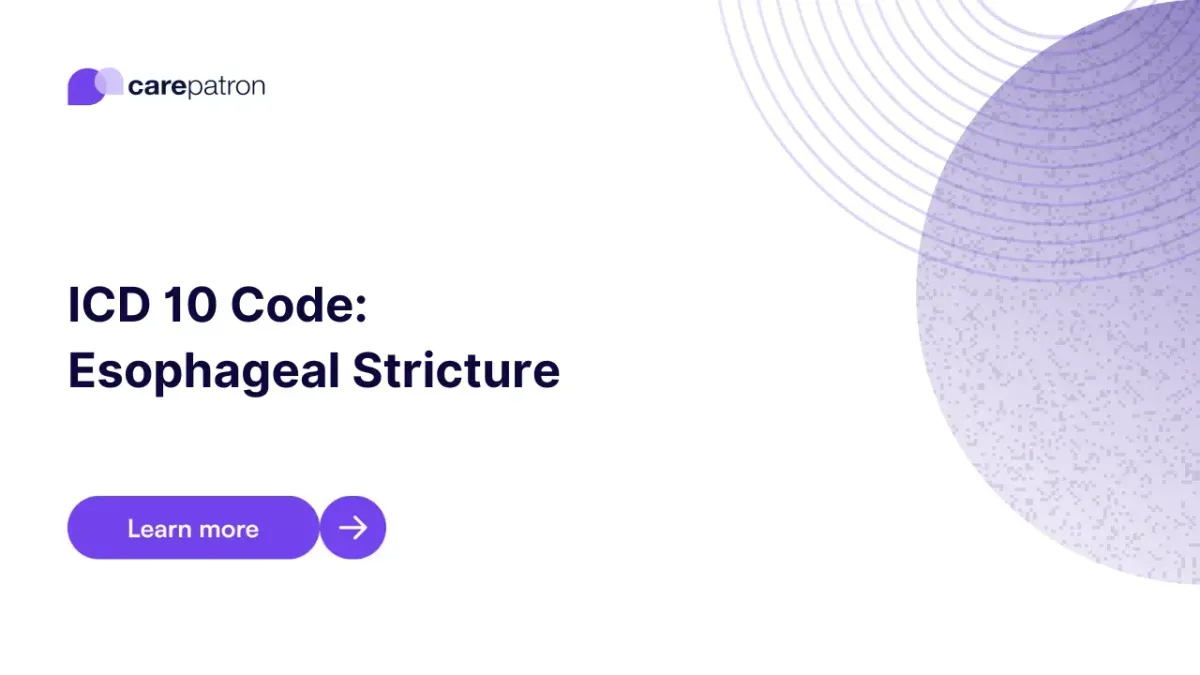
Esophageal Stricture ICD-10-CM Codes
Learn about the ICD-10 codes for esophageal stricture you can use through this guide.
Use Code
Commonly asked questions
Prolonged exposure of the esophagus to stomach acid from GERD can cause inflammation and scarring, leading to the narrowing or stricture of the esophagus.
Not always. With appropriate treatment like dilation, medications, or surgery, many individuals experience symptom relief. However, some might need repeated interventions.
Yes, avoiding irritant foods or those causing acid reflux can reduce symptoms and prevent further stricture progression.
EHR and practice management software
Get started for free
*No credit card required
Free
$0/usd
Unlimited clients
Telehealth
1GB of storage
Client portal text
Automated billing and online payments
